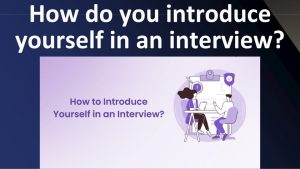The Insider Guide to Careers
Insider information, secrets and tips about getting hired and building careers. For employees and job candidates.
Here are six perspectives to make one rethink our approach to jobs and careers. This article is a bit philosophical and takes a big picture view of careers.
1. Understand company culture, its Raison d’être and your team culture
Not all companies are created alike. Some are great. Others are crappy and will mistreat employees. If you want to join companies that treat you well, you may have to go by rankings like Fortune and Great Place to Work rankings. Out of thousands of companies that exist, there are probably 100–200 companies that treat employees with some respect. This statistic means that without doing your research, there is a 90% chance that you will work in a lousy company. Remember that companies are not present to treat employees well, there are present to maximize shareholder profits.
The US model of capitalism is idolized worldwide, prioritizing shareholders over employees and customers. So, all that matters is share market value. Only a few enlightened companies invest in people, corporate citizenship, and other best practices. They do it not because other companies practice it but because these are the right things to do. These companies, many of which face a war of talent, aim to differentiate themselves from their competitors by such actions and attract candidates even in tight talent pools.
Similarly, not all companies pay well. There are sound reasons behind this. A company that meets the market by paying at the 50th percentile has lower labor costs than a company that pays at the 80th percentile. This differential means that the labor costs of the former company are lower. Hence, they have more leeway to invest in learning and development, promotions, leadership development, educational programs, and so on. Companies that pay very high, above the 90th percentile, can afford to do so because they make obscene profits with little expenses. FAMG companies generate tens of billions of dollars from advertising, enabling them to pay top of the market. Most regular companies have limited revenues and wafer-thin profit margins and cannot afford to compete with the tech behemoths. Google makes around 100 billion dollars annually from advertising alone and can pay its employees whatever they want (typically at the 90-95% percentile).
High compensation doesn’t bring satisfaction. The human mind will always seek reasons to validate the perpetual state of workplace envy it loves to wallow in. In a recent board meeting, the CEO of Google faced a barrage of questions, most of them linked to inflation and compensation. In particular, one question which left him stumped was why Google only paid at the 90–95th percentile when its recruiting selectivity was at the 99th percentile. If one is not careful, it is easy to be perpetually unhappy as somebody in your peer group will always make more money than you. Only the right skills, work environment, and a feeling of satisfaction will ensure motivation in the workplace.
Try to understand the subculture within your team and the mindset of your manager. Irrespective of how fantastic the company is, the employee is doomed if the manager is terrible. Don’t work in a hateful culture, even if the job pays well. Everyone has the right to work in a workplace that values you. If that doesn’t happen and you are stuck with a lousy manager, change your job inside the company to a different team. As a last resort, change your company. The first couple of years are crucial for developing your internal peace of mind, which is essential to acquire new skills. Never focus too much on compensation. Work in a place that values you.
2. Career is a long marathon and not a sprint:
Don’t envy your friends and enemies at work. At every point in your career, one will be up, and the other will be down. Life averages out in the long term. Over decades, the spikes will all even out – the rich will not always be rich, and the poor will not always be poor. Each person will adopt different strategies, and the outcomes will not always be linked to your effort. Luck and the random external environment will all play a role.
“Some will find promotions inside the company, and some will find promotions outside the company,
Some will be a company lifer, and some will jump across many companies,
Some will work in low-paying companies, and some in high-paying companies,
Some will have a pathetic family life, and some will have a great one.
Ultimately, it will work out equally well or equally bad for everyone.”
Unless you strike gold as an entrepreneur, everybody will end up in the same boat, plus or minus a couple of hundred thousand dollars. For comparison, a Harvard MBA grad may make 8.5 million dollars in a lifetime compared to 5.7 million dollars for a University of Minnesota MBA. At the same time, this data ignores that every dollar will go a much longer way in Minneapolis than in Boston. One hundred thousand dollars can get you an excellent standard of life in Minneapolis, where you can purchase a house for 150,000 dollars. In Boston or New York, apartments start from 1 to 1.5 million dollars. If one accounts for the 30% difference in living expenses, the gap looks much smaller.
Slogging every day, ignoring your family, and inordinately trying to make your company more profitable will improve your career outcomes but negatively impact your health outcomes. Balance in life is critical to avoid burnout. As Indra Nooyi, ex-CEO of Pepsico, once mentioned in a discussion, one can pick two out of three goals in a company – Company work time, Personal Me time, or Family time. Nobody can get all three. So get your priorities aligned.
3. Target to optimize skills and not high compensation:
When you join a company, aim to be irreplaceable and learn critical skills over time. Please don’t bother about compensation when you begin your career. Salary depends only on your skills and how difficult it is to find your replacement. Even students from Ivy League universities (who may initially get a small wage premium) will quickly fall behind the salary curve if they don’t work hard in the workplace and gain the right skills. If one is being paid unfairly, remember that compensation equity is just one job change away. The market is good at correcting compensation disparities as long as one brings the right skills to the table and can add value.
If you want companies to treat you properly, remember that you need to bring some skills which are difficult to find in the open market. The more the search cost of finding your replacement, the better off your work condition will be. Typically, it takes 5–10 years for employees to build relevant expertise that is invaluable to companies.
Why do some fast food companies with high attrition focus on recruiting freshers out of school and during college? The truth is that such fast food companies tend to do tedious and often mindless work. It may surprise you that the attrition rates in these companies range from 15–30%. Costs are kept low by backfilling experienced employees with freshers. The lowest-paid employees in every company are the new college hires, which makes them a lucrative talent pool. This talent pool has the lowest compensation structure, and wouldn’t mind doing mind-numbing work. Paradoxically, lower wages and a high number of fresh college hires keep the operational costs under control. The company looks more efficient on paper, even if the manager has the added headache of training all these new hires.
4. Your first job is the first step in a lifelong journey
People’s lifespan is expanding, and many kids today will live for at least a hundred years. Do not use the guideposts of the past, like finishing your education in your twenties, settling down in your thirties, and retiring in your sixties. Use your common sense and do the things which will make you comfortable. Retiring at 65 made sense when the average life expectancy was age 70. Social security was not designed for people 35 years post-retirement. So you will have to craft your destiny and keep enough savings to safeguard your future.
Similarly, workplaces will also change every 20-25 years. The workplace of 1995, when the internet was emerging, bears no resemblance to the environment of 2020, where the big tech companies ruled the stock market. Similarly, with the speed of technological change, the world of 2035 will likely be an alien workspace (from today’s perspective). These jobs and workplaces need a lot of reinventing and picking up new skills. A good example is Parag Agarwal, the ex-CEO of Twitter, who took up lifelong learning to shore up his coding skills. He used to take part in hackathons and take online courses to brush up on his tech skills despite having a Ph.D. in CS from Stanford. No wonder he is among the youngest tech CEOs. Parag’s case is illustrative of how fancy degrees are increasingly becoming irrelevant. Dropouts like Elon Musk, Travis Kalanick, and Jack Dorsey are becoming the norm.
The question for the future is not whether you have an MS, MBA, or Ph.D. degree but if you have gathered specific skill sets. Similarly, you may take sabbaticals or breaks every decade or so to learn new skills. So do not rest on your laurels once you get your first job; it is probably the beginning of a long career. It may be just the first step.
5. One day, you will retire and find a life outside of work
With rising lifespans, many people will live well into their eighties and nineties. Rich people live 9-10 years more than the national average. If one retires at age 65, people will still be around for many decades. There has to be a purpose in life after retirement. Discover your passions and work in an area you like. I am building a website where anyone can do career assessments and check where their true interests lie. You will have an unstoppable career when your personality, traits, strengths, and interests align. Don’t chase the dreams of your peers. Instead, dare to dream for yourself and live your own personalized and unique life.
6. Conclusion
It is the journey that matters and not the end. One day or the other, none of us will be around.
Let me close by quoting the poem Ithaka which sums up the expectations around modern expectations about work and life:
“Keep Ithaka always in your mind.
Arriving there is what you are destined for.
But do not hurry the journey at all.
Better if it lasts for years,
so you are old by the time you reach the island,
wealthy with all you have gained on the way,
not expecting Ithaka to make you rich.
Ithaka gave you the marvelous journey.
Without her, you would not have set out.
She has nothing left to give you now.
And if you find her poor, Ithaka won’t have fooled you.
Wise as you will have become, so full of experience,
you will have understood by then what these Ithakas mean.”
For more such articles, also follow my Substack and Careerbolt channels.



